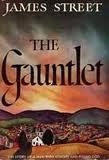Part of Series
The Wingo Saga, vol. 2 Baptist preacher, London Wingo, first introduced in The Gauntlet, returns to Linden, Missouri after a twenty year absence to face what is to be the greatest crisis in his ministerial and parental career. London and his wife, Kathie, had built a church in Linden, Missouri where they faced the trials and triumphs of a first ministry. When Kathie died, however, London accepted a position in Kansas City, and departed abruptly with his his baby daughter. London left Linden as a young widower—stunned, helpless and alone—but returns as man in his prime—successful, passionate about his calling, and the loving father of a beloved, spirited daughter—ready to leave the big leagues for the minors and address the sorrows he left behind. London looks forward to the challenge of organizing a new church and to writing a biography of Roger Williams, a project he has been planning for years. But, most of all, he believes in the mystic properties of farms and small towns and hopes that his daughter, a free soul who doesn't quite fit anywhere, will discover a way to find herself. London succeeds at first in quieting the dissident elements in his ministry by placing the critics in important positions in the church hierarchy. But Paige becomes interested in Vance Andrews who is engaged to the daughter of one of London's most powerful enemies and London fears trouble is ahead. As London faces this crisis, his faith is bulwarked by a woman who encourages and helps him with his parish problems—Forrest Roberts, a woman of understanding and keen awareness; a woman who sparks the promise of new love.
Author

From Wikipedia: James Howell Street (October 15, 1903 – September 28, 1954) was a U.S. journalist, minister, and writer of Southern historical novels. Street was born in Lumberton, Mississippi, in 1903. As a teenager, he began working as a journalist for newspapers in Laurel and Hattiesburg, Mississippi. At the age of 20, Street, born a Roman Catholic, decided to become a Baptist minister, attending Southwestern Baptist Theological Seminary and Howard College. Unsatisfied with his pastoral work after ministering stints in Missouri, Mississippi, and Alabama, Street returned to journalism in 1926. After briefly holding a position with the Pensacola, Florida Journal, Street joined the staff of the Associated Press. The AP position took him to New York, where he began freelance writing fiction. Hired away from the AP by the New York World-Telegram in 1937, Street sold a short story ("A Letter to the Editor") to Cosmopolitan magazine, which caught the eye of film producer David Selznick, who turned it into a hit film, Nothing Sacred. The Broadway musical, Hazel Flagg, was based on his short story, as well as the Dean Martin and Jerry Lewis-film Living It Up. His success allowed him to write full-time, and throughout the 1940s he worked on a five-novel series of historical fiction about the progress of the Dabney family through the 19th century. The Dabney pentology—Oh, Promised Land, Tap Roots, By Valor and Arms, Tomorrow We Reap, and Mingo Dabney—explored classic Southern issues of race and honor, and strongly characterized Street's struggle to reconcile his Southern heritage with his feelings about racial injustice. The series was a critical and popular success, with several of the books being made into feature films. Street modeled characters in his Dabney family saga on Sam Dale, Newt Knight and Greenwood LeFlore. Street also published two popular novels about boys and dogs, The Biscuit Eater and Good-bye, My Lady, both were turned into movies, and a set of semi-autobiographical novels about a Baptist minister, The Gauntlet and The High Calling, both were bought by Hollywood but never produced. Street's short stories and articles appeared regularly in Cosmopolitan, The Saturday Evening Post, Collier's and Holiday. Street died of a heart attack, in Chapel Hill, N.C., on September 28, 1954, at the age of 50.
